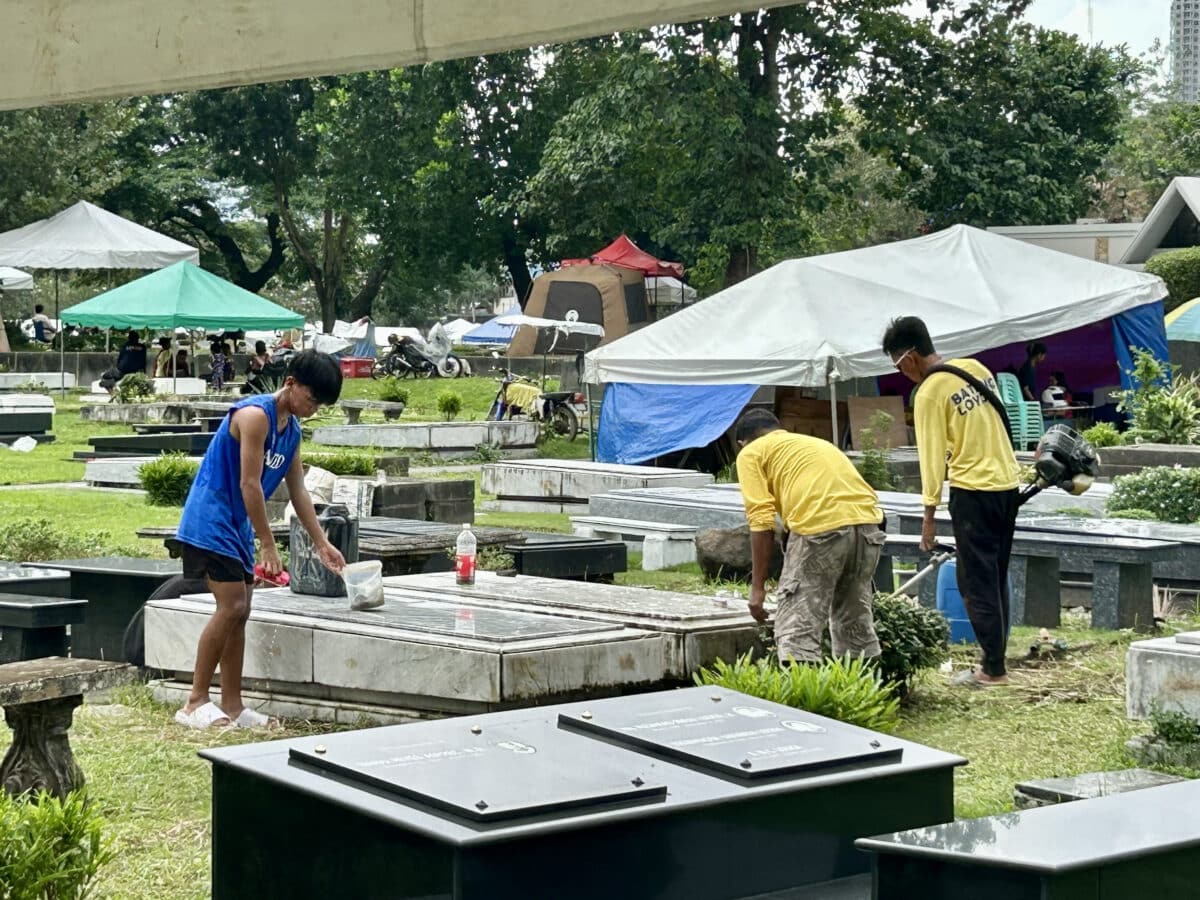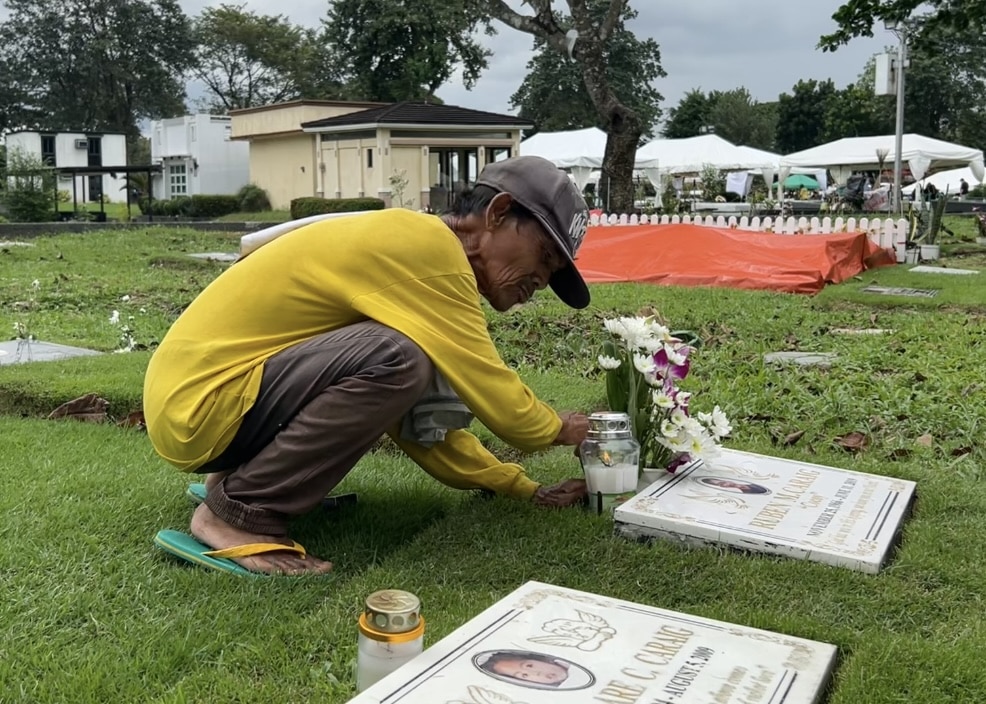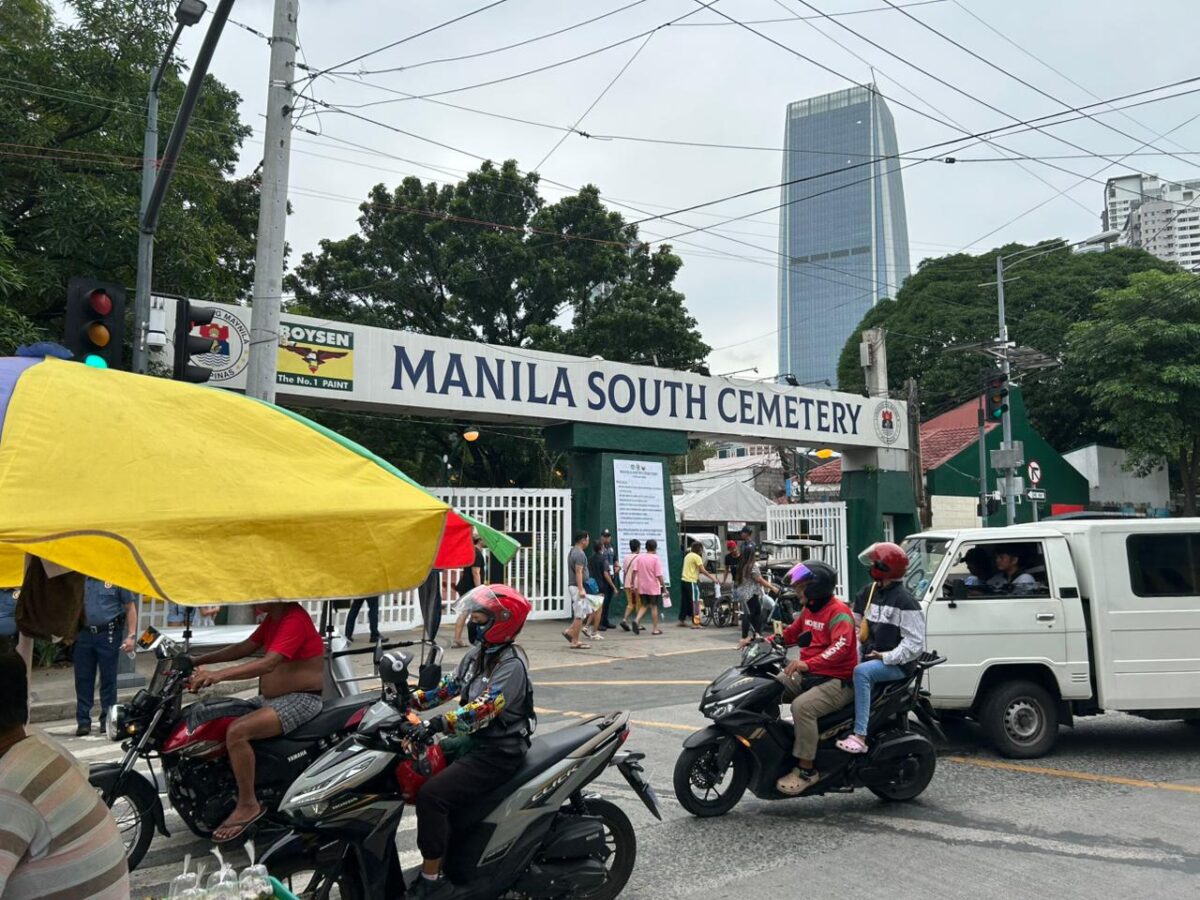Cemetery as a home: Caretakers find purpose in cleaning graves

Caretakers were cleaning graves at the Loyola Memorial Park in Marikina City on Thursday, October 31. JOWN MANALO / INQUIRER.net.
MANILA, Philippines — As Undas nears and Filipino families prepare to honor their departed, cemeteries across the country are bustling with activity.
But behind the scenes, some unsung heroes make the annual gatherings possible: the cemetery caretakers and staff who have dedicated themselves to preserving the hallowed grounds.
For them, the cemetery is now more than a workplace — it has become a home, a place to serve the memories of those who rest there and the families who visit.
Danilo Bandojo, 65, has been a caretaker in the Loyola Memorial Park Marikina for the last 17 years.
He used to work as a mechanic before deciding to work in the cemetery in 2007.
Article continues after this advertisement
Danilo Bandojo, 65, cleans the lot of a tombstone under his care at the Loyola Memorial Park on Thursday, October 31. JOWN MANALO / INQUIRER.net
According to Bandojo, he is contracted to oversee up to 50 graves in the memorial park.
Article continues after this advertisementHe is paid P300 per month for every tombstone he cleans and for every burial he makes.
“During Undas, I have a lot of sideline work because many people visit, and I also take care of lots or graves. My income during that time is guaranteed,” the 65-year-old caretaker told INQUIRER.net in Filipino on Thursday.
Bandojo begins his day at 7 a.m. by washing and cleaning tombs, as well as feeding the animals in the cemetery.
He rides his bike to work every day, covering a distance of 10 kilometers from Antipolo.
“It is like I’m just taking a stroll, it is breezy. It is much more enjoyable,” Bandojo said in Filipino.
Bandojo has lived alone since the passing of his wife, and his children have moved out to start their own families.
His salary is just enough to get by, but there are times when his payments arrive late.
However, he still worries whenever storms strike the country or when it is too hot for him to work, as it means a day without pay.
“I’m getting anxious as the wind picks up; when the storm hits, that’s it. No power. Hungry. No income,” he said in Filipino.
He also recounted an incident where he suffered a heat stroke during summer.
Despite the challenges, he said being a cemetery caretaker gives him more freedom to relax and do the things he wants.
“I’m happy here at the cemetery. It’s breezy. Going to the mall? I’d rather not. I’ll just stay here at Loyola [Memorial Park]. The air is nice, there are no buildings, no disturbances, and you can lie down anywhere as long as it is clean. No problem. Can you lie down on the stairs at the mall?” Bandojo said in Filipino.
He also said he prefers this lifestyle, having grown to enjoy his role as a caretaker at Loyola Memorial Park.
Little hands, big hearts
Meanwhile, elementary students Andy Castro, Gabie Inangay, and Darren Dogleo were sweeping graves and tombstones in Manila South Cemetery on Thursday noon.

The streets in Manila South Cemetery are busy as All Saints’ Day and All Souls’ Day draw near. JASON SIGALES / INQUIRER.net
According to them, they can clean and repaint three to four tombstones a day whenever they do not have classes.
When asked why they were working in the cemetery, the students replied in Filipino, “We clean so we can earn money to buy food.”
Each of the boys earns P150 for every newly painted tomb and P100 for sweeping lots assigned to them.
Castro, 10, told INQUIRER.net on Thursday that he has been working in the cemetery since 2021.
“Our parents also told us to save up so we would have money for our daily expenses,” he said in Filipino.
Dogleo, 9, said his parents are also caretakers in the public cemetery.
“We have been here since 7 a.m., and we usually stay until evening, around 7 p.m. as well,” he added.
Inangay, 11, admitted that he sometimes feels eerie sensations while cleaning tombs at night in the cemetery.
“But I’m not scared anymore because I’m used to it. We’ve been living here for a long time,” he added.
He said he now is more afraid of not being able to earn money and buy food for himself and his mother who is a laundrywoman.
His father, according to him, is working in a farm in Pangasinan.
All three said they continue working as tomb caretakers because they see it as a way to help their own families.
“Sometimes, when we don’t have anything to clean, we don’t bring home any food. That’s why we’re happy here because we can help our parents,” Inangay said in Filipino.
It is without question that Bandojo, Castro, Inangay, and Dogleo share a unique dedication and motivation to their work as caretakers.
For them, the cemetery is not just a place of work; it has become an integral part of their lives.
Whether they seek a peaceful, fulfilling life or aim to alleviate the struggles of their loved ones, all of them serve a purpose greater than themselves.
With each passing year, as caretakers like Bandojo, Castro, Inangay, and Dogleo continue their work, Filipino families find comfort in knowing that their loved ones rest under the quiet, devoted watch of those who have made the cemetery their own home, extending their care beyond duty, into reverence.
READ: Caretakers, families do last-minute preps at Manila South Cemetery